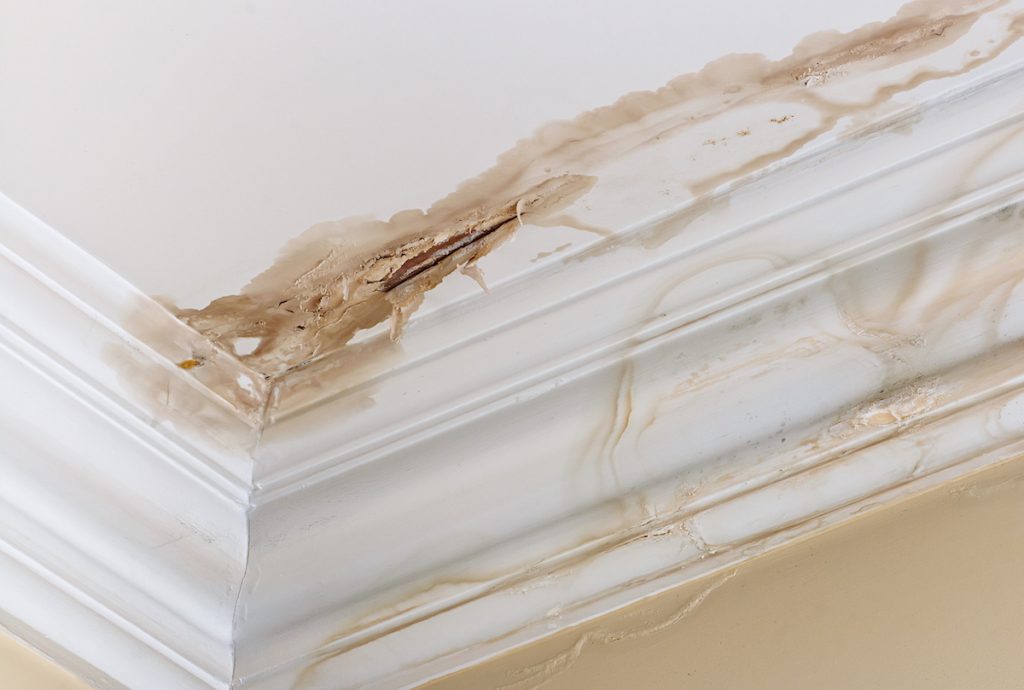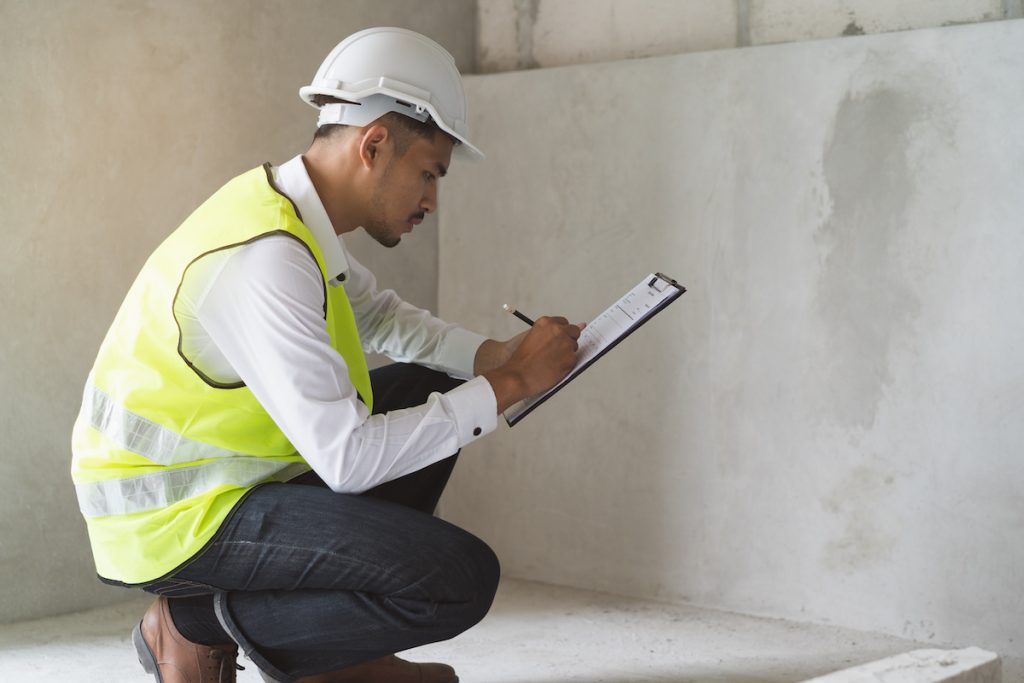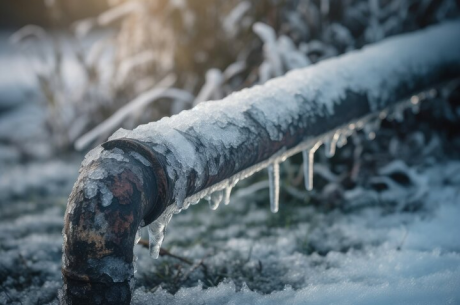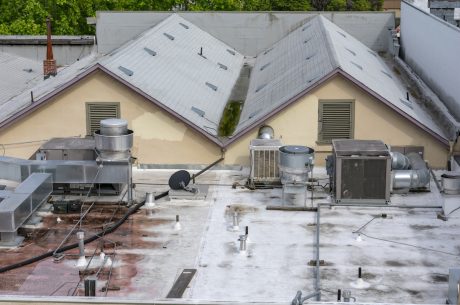Imagine finding your dream home: great size with plenty of space for your family, a wonderful location in the best school district. It seems perfect. But then you find out the home has water damage. Though this may not be a complete deal-breaker, it definitely puts a damper on the initial excitement. When you’re thinking about buying a water damaged house, there are a few things you’ll need to keep in mind.
First and foremost, it’s important to understand that a home with water damage can be a major financial investment. Not only will you need to make repairs to the property, but your insurance rates may go up once you own a water-damaged house.
Nevertheless, there are still a majority of people who are interested in buying a water-damaged house. In some cases, the damage isn’t as severe as it looks, and the repairs aren’t too expensive. Additionally, many people see water-damaged homes as an opportunity to get a great deal on a property.

If you’re considering buying a house with water damage, we’ll discuss a few things you’ll want to keep in mind.
How Can I Tell if a Home Has Water Damage?
There are a few things to look for when inspecting a home for water damage. The first is obvious signs of water damage, such as stains on the walls or ceiling. Water stains are usually brown or yellow in color and may be accompanied by mold.
Another sign of water damage is peeling paint or wallpaper – this can indicate a leak that has since been repaired. However, there is the possibility that the repairs may not have been done properly, and the problem could reemerge in the future.
Finally, you will want to be aware of any musty odors in the home. Musty odors are often caused by significant mold issues and can indicate extensive water damage.
Keep in mind that not all water damage is visible. Just because you do not notice any of these signs does not mean there is no existing damage in the home. A home inspector will be needed to truly check the home.
What Causes Water Damage in Homes?
Water damage in homes can be caused by a number of different things. The most common causes are leaks from a burst pipe or a leaky roof. Leaks can occur in pipes, fixtures, and appliances, and if they are not fixed promptly, they can cause extensive water damage.
Another common cause of water damage is flooding. Flooding can occur due to heavy rains, broken dams, or other natural disasters. If your home is located in a flood zone, it is important to have flood insurance to protect yourself from costly repairs.
Finally, water damage can also be caused by problems with the foundation of the house. Foundation cracks can allow water to seep into the basement, causing considerable damage.
What Should I Do Before Buying a House with Water Damage?
Purchasing a home is a significant financial commitment. It’s natural to be concerned about making such a huge investment into a home with water damage. There are several things to consider and actions to take before shelling out so much money on a property with water damage.
Work With a Real Estate Agent
Real estate agents are familiar with the process of buying and selling water-damaged homes. They can help you navigate the process and find the best deal on a property. They are also the experts that can help you negotiate a price reduction, if applicable, based on the damage.
Often, remediation expenses can be built into closing costs. Talk to your agent about this option if necessary and be sure to find someone you can trust to work with you through the final deal.
Real estate agents can also provide valuable insights into the local market conditions and help you identify properties that may have less severe damage or better potential for repair.
They can connect you with reputable contractors and inspectors who specialize in water damage, ensuring you get accurate assessments and estimates.

Get a Home Inspection
It’s crucial to have a professional complete a comprehensive water damage inspection of the property. This will help you assess the extent of the damage, determine if there is considerable structural damage, and prepare for any necessary repairs. Be sure to get a copy of the home inspection report in writing.
Additionally, you should get an estimate of the expected repair costs for the damage. Water damage repair costs can range from modest to expensive, so you’ll want to know what you can expect beforehand.
A thorough home inspection will cover areas such as the foundation, walls, roof, plumbing, and electrical systems. The inspector will check for signs of mold, mildew, and rot, which can pose health risks and lead to further structural damage if not addressed. Understanding the full scope of the damage will help you make an informed decision and negotiate a fair price for the property.
Consider the Home’s Location
You should consider whether or not the house is located in a flood zone. If so, you’ll need to purchase flood insurance. Flood insurance can be expensive, so you’ll need to factor that into your budget.
Additionally, you may need to research the neighborhood where the house is located. Water-damaged homes are often located in areas that are prone to flooding.
Investigate the history of flooding in the area and any future risks due to climate change or infrastructure developments. Look into the local government’s flood mitigation efforts and community plans to address flooding.
Understanding these factors can help you gauge the long-term risks and potential costs associated with owning a home in a flood-prone area.
Obtain Homeowner’s Insurance Quotes
It is recommended that you get homeowner’s insurance quotes from several local insurance agencies. Homeowner’s insurance rates can vary based on the property’s history of water damage, its location, and the extent of the damage. Comparing multiple quotes will help you find the best coverage at a reasonable price.
Be transparent with insurers about the water damage and provide them with the home inspection report. This will help ensure you get accurate quotes and avoid any surprises when filing a claim. Additionally, inquire about coverage for future water damage and any preventive measures you can take to reduce premiums.
Plan for Future Repairs and Maintenance
Water damage can lead to ongoing issues such as mold growth, structural problems, and foundation concerns. Plan for potential future repairs and maintenance that may arise even after the initial restoration. Setting aside a budget for these unexpected costs can help you manage your finances better.
Consider conducting preventive maintenance such as waterproofing the basement, installing a sump pump, and improving drainage around the property. Regularly inspect and maintain the roof, gutters, and plumbing systems to prevent future water damage. Investing in these measures can help protect your home and reduce long-term maintenance costs.
Check for Necessary Permits and Certifications
Ensure that any past repairs or renovations done to address water damage were completed with the necessary permits and certifications. This can affect the home’s value and your ability to sell it in the future. Working with a knowledgeable real estate agent can help you verify this information.
Check with the local building department to confirm that all repairs meet current building codes and standards. This will help you avoid potential legal and safety issues down the line. If permits were not obtained, you might need to have the work inspected and certified, which could incur additional costs.
Consult a Financial Advisor
Given the potential financial implications of buying a water-damaged home, consulting a financial advisor may be beneficial. They can help you understand the long-term financial impact and assist in creating a budget that includes all necessary expenses related to the purchase and repair of the property.
A financial advisor can also help you explore financing options, such as renovation loans or grants for flood-prone properties. They can provide guidance on managing your mortgage, insurance, and repair costs effectively, ensuring you make a sound investment in your new home.
Understand the Legal Implications
Familiarize yourself with the legal implications of buying a home with water damage. This includes understanding your rights and responsibilities as a buyer, as well as any disclosures the seller is required to make about the property’s condition. Legal advice can ensure that you are fully informed and protected.
Consult with a real estate attorney to review the purchase agreement and any contingencies related to the water damage. They can help you negotiate terms that protect your interests and ensure that all disclosures are made correctly. Understanding the legal aspects of the transaction will help you avoid potential disputes and liabilities in the future.
By taking these steps, you can make a more informed decision and potentially secure a better deal on a water-damaged home, while also preparing for the necessary repairs and ongoing maintenance.
What Should I Do After Buying a Water Damaged House?
After careful consideration, you’ve decided to purchase the home of your dreams despite the water damage; now what? Once you’ve purchased a water-damaged home, it’s important to take care of any water damage repairs as soon as possible.
The longer you wait to make repairs, the worse the damage can become. Water damage may sometimes lead to mold growth, so immediately repairing water damage can help you avoid mold removal and mold remediation costs. Also, if you don’t take care of the repairs in a timely manner, your homeowners’ insurance rates could increase.
Be sure to document the damage as soon as possible so you have a record of what needs to be repaired. Take pictures and videos of the damage and keep track of any receipts and paperwork for repairs. This will help you when it comes time to file a claim with your insurance company.
Water-damaged homes can be a major financial investment, but they can also be a great deal. By keeping these things in mind, you can make an informed decision about whether or not buying a water-damaged home is right for you.

PuroClean is Available 24/7 for Water Damage Remediation
If you’re facing water damage in your home or business, don’t wait to get help. Call PuroClean of Potomac at (571) 483-8400. We are available around the clock to assist you with expert water damage remediation and restoration services. Our experienced team handles both residential and commercial properties, ensuring a swift and professional restoration of your space. Contact us anytime—help is just a phone call away.




 PuroClean of Potomac
PuroClean of Potomac